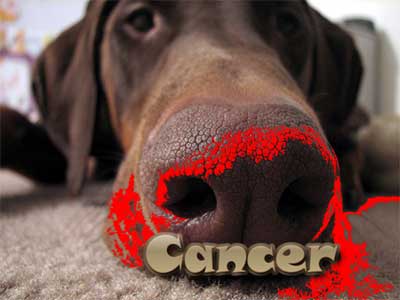
 Altered Image: Original photo by bazusa
Altered Image: Original photo by bazusaLet me put my cancer cutting robot on pause for a moment, because I have some news for you.
Technology sure has come a long way.
We are living in a day when cancer – while still not curable (but may be preventable) – can be sniffed out by robots with knives. Yes, I said it correctly, a robot sniffs out cancer on your body, and then cuts it off with a knife.
What’s next? Robots with lasers that sniff out cancer?
UK Robot Can Perform Cancer Surgery
Scientists at London’s Imperial College have created a robot called the “iKnife” that uses an electrosurgical knife to cut tissue and instantly do a mass spectrometer to do an instant chemical analysis.
This technology is used to determine where the cancer starts and ends, because human surgeons often have difficulty determining where all of the cancer is. This can result in leaving some of the cancer cells behind.
This surgical robot can instantly determine where the cancer is, using an electric current to essentially “sniff” it out. The iKnife is still experimental at this point, and the prototype was created at about $300,000.00 USD.
The full story on the iKnife cancer removing robot can be read here.
What Happened to The Cancer Sniffing Dogs?
Specially trained dogs can sniff out various cancers, including ovarian and breast cancer in women to prostate cancer in men. The only difference is, they won’t cut it out for you, like the iKnife robot in the UK. More importantly, there is currently no standard test to detect ovarian cancer in women.
Dogs Sniffing Cancer Test Findings
- A test in Germany in 2011 showed that dogs could be trained to sniff out lung cancer from only breath samples
- Japan found that a black lab could smell bowel cancer from a patient’s breath and stool samples (source here)
- A Doctor in Israel has research to back up dogs can differentiate cancerous cells from non-cancerous (source here)
- “Dog accuracy in cancer sniffing have been proven to be 88% specific and 99% sensitive in the early detection of lung and breast cancer” – DogsDetectCancer.org
So Why Aren’t We Relying on Dogs for More Cancer Tests?
Dogs have been trained to sniff out cancer since the early 2000’s, but Doctors and Scientists remain skeptical about relying on dogs. Dogs are able to smell cancerous substances excreted via urine into cups, which are then put to the sniff test.
The experts maintain that there are logistical reasons that the use of dogs to detect cancer are not widespread.
Dr. Len Lichtenfeld of the American Cancer Society says the dog experiments are not there yet in terms of being proven in a laboratory tested environment. On top of that, Lichtenfeld says it is simply not practical.
“Any time you’re talking about a live animal being trained and being capable of looking at millions of tests, the logistics of that would be problematic,” says Dr. Lichtenfeld.
How Much Does it Cost?
It costs about $35,000.00 USD and 1,200 hours of training to train a dog to sniff cancer in the U.S. (PetPlace.com)
It costs about £50,000 to train a cancer sniffing dog in the UK, if you are not sponsored or in a subsidized program. If a program like the Medical Detection Dogs accepts a dog into their program, it is around £10,000 (includes training and ongoing support).
*It is best to consider dog breeds that have a friendly personality, and have a good sense of smell.
Could a person first detect cancer with a dog sniff test, then demand that the iKnife be used to cut it out?
Why, certainly.



I think the term “robot” and “robotic” is used loosely in the case of the DaVinci surgical system. The system does not perform surgery automatically or independently. The system is fully operated/controlled by the surgeon (a human). In the case of one of the mentioned deaths, I am not certain the DaVinci machine “nicked” a patients blood vessel in any way different from how a scalpel could/would have IN the hands of a surgeon.
I wouldn’t trust any of them as they there’s no technology whose results are 100% accurate nor there’s any guarantee that the animal would accurately sniff the cancer.
-Pramod
Martin,
I do not know about the DaVinci machine. This article was about a brand new invention dubbed the “iKnife.”
Pramod,
Dog sniffing may not be 100% but it is an early detection and a method to say: “Hey, I think we should run some more tests to see if this is cancer.”
I did not realize that training your dog can be so expensive. And I was happy as I learned my dog fetch: p Maybe it’s better to create a mechanical dog nose 🙂
biokosmetyki,
Training a dog to sniff out cancer can be expensive, but I’m sure they charge a big fee for each cancer sniff test. Will dogs or robots take over in the future?
This is really a great news to know, especially for people like me who have a cancer patient at home. thanks a lot for sharing this valuable information with us.
Selena, you are most welcome. I really hope that your cancer patient has a full recovery. Thank you for reading.
You have posted a best post, you have given good information about Detect cancer. You have done nice job…
Thank you so much, Intead. I hope cancer is not bothering you or your family. Thanks for reading.
Seems like a good idea, Heard of dog who could sniff an could detect sugar level low or high…
Could this work as well?